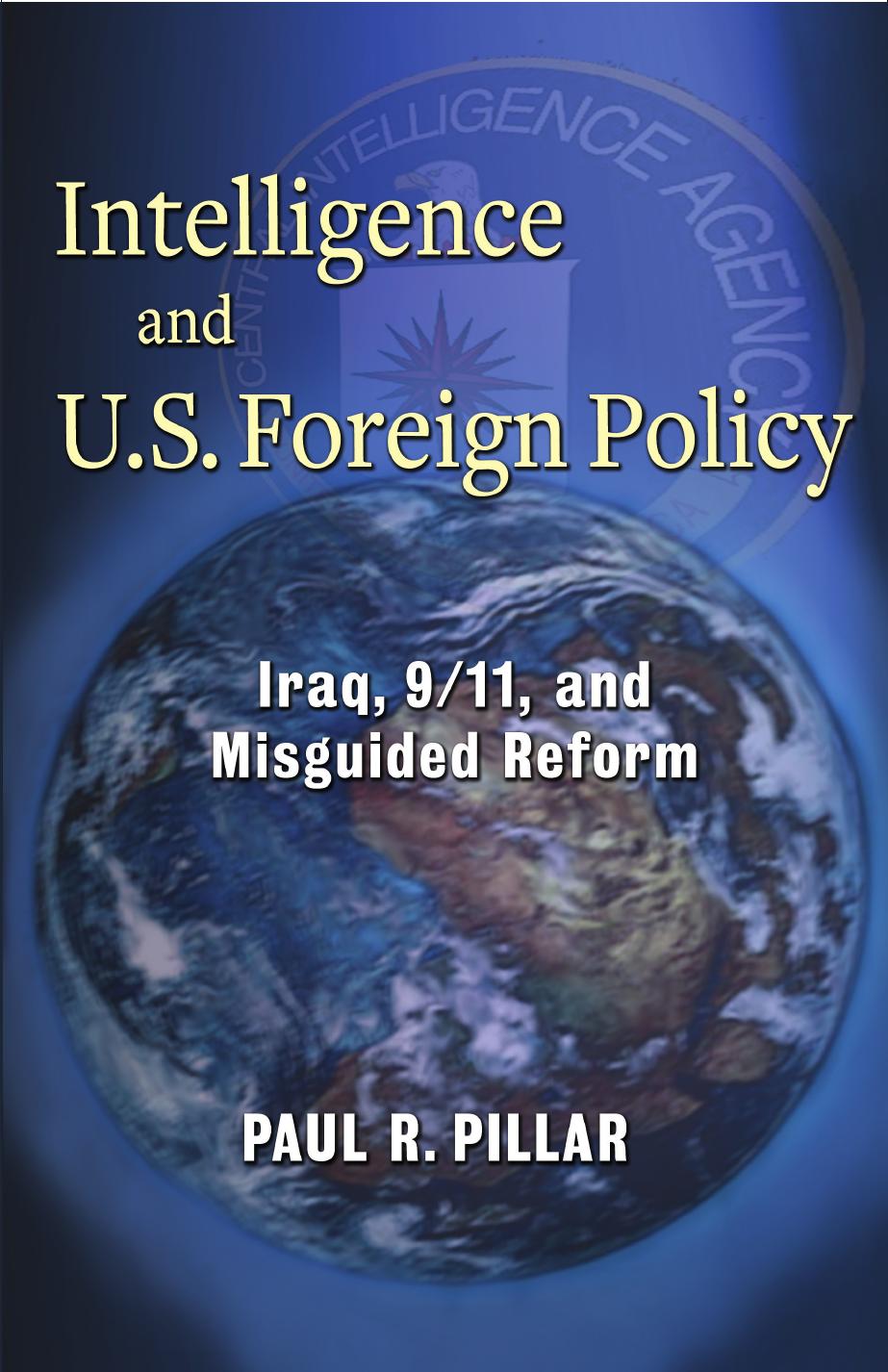Intelligence and U. S. Foreign Policy by Paul R. Pillar

Author:Paul R. Pillar [Pillar, Paul R.]
Language: eng
Format: epub, pdf
Tags: International Relations, Military, Political Science, Political Freedom, History, Politics, General
ISBN: 9780231527804
Google: oIfVBXQhVFIC
Goodreads: 16301909
Publisher: Columbia University Press
Published: 2011-09-06T00:00:00+00:00
CHAPTER EIGHT
THE NEVER-ENDING ISSUE
The theme of intelligence failure and reform has persisted through the seven decades since Pearl Harbor and never seems close to going away. Commissions created to examine Iraqi weapons programs and 9/11 are only among the most recent in a long line of official inquiries into intelligence. Official studies on intelligence have become so numerous that official studies on the studies have been written just to keep track of them all.1 Some of the inquiries made enough of a splash that their names have lingered in memory, such as the Church and Pike committees of the 1970s. Many others seem more obscure today, such as the DullesâJacksonâCorrea report, the Doolittle report, the BruceâLovett report, the Murphy Commission, the Taylor Commission, the Kirkpatrick report, the Ogilvie report, the Schlesinger report, the Rockefeller Commission, the AspinâBrown Commission, or the Scowcroft review. Since 1947, commissions, congressional committees, and elder statesmen acting as consultants have submitted, by one scholarâs reckoning, between fifteen and twenty sets of official proposals (depending on how important a proposal has to be to count) for changes in U.S. intelligence.2 And beyond the official discourse is a hugeâand just as old and unendingâflow of unofficial commentary on the subject. The editors of one recent compendium of essays on improving intelligence analysis conclude that âfixing analysis seems a perennial and elusive goal.â3 The same might be said about collection and other parts of the intelligence business.
This history raises a question: Given that there has been so much attention for so long on fixing intelligence, why does it never seem to get fixed? Or to phrase the question in its most objective and inclusive form: Why is intelligence failure such a perennial issue? Anyone who wants to add still more commentary and still more proposals for fixing intelligence to what already is straining our shelves and overflowing our in-boxes needs to address that question first. Otherwise, we would be entitled to dismiss the latest demand on our attention as probably a reinvention of wheels already invented several times over, an exploring of dead ends that experience has demonstrated to be dead, or a quixotic attempt to solve unsolvable problems. Or it may all be part of a largely misdirected exercise that misses most of the reasons that inaccurate images form in policymakersâ minds and that misguided foreign policies continue to get made.
Download
Intelligence and U. S. Foreign Policy by Paul R. Pillar.pdf
This site does not store any files on its server. We only index and link to content provided by other sites. Please contact the content providers to delete copyright contents if any and email us, we'll remove relevant links or contents immediately.
| Espionage | Hoaxes & Deceptions |
| Murder & Mayhem | Organized Crime |
| Serial Killers | White Collar Crime |
Mindhunter: Inside the FBI's Elite Serial Crime Unit by John E. Douglas & Mark Olshaker(9302)
Wiseguy by Nicholas Pileggi(5754)
Room 212 by Kate Stewart(5093)
Hitman by Howie Carr(5082)
Secrecy World by Jake Bernstein(4729)
Killers of the Flower Moon: The Osage Murders and the Birth of the FBI by David Grann(4427)
Papillon (English) by Henri Charrière(4239)
Breaking Free by Rachel Jeffs(4207)
Killers of the Flower Moon by David Grann(4025)
Say Nothing by Patrick Radden Keefe(3966)
American Kingpin by Nick Bilton(3859)
The Secret Barrister by The Secret Barrister(3681)
Molly's Game: From Hollywood's Elite to Wall Street's Billionaire Boys Club, My High-Stakes Adventure in the World of Underground Poker by Molly Bloom(3522)
Mysteries by Colin Wilson(3438)
In Cold Blood by Truman Capote(3366)
Signature in the Cell: DNA and the Evidence for Intelligent Design by Stephen C. Meyer(3118)
I'll Be Gone in the Dark by Michelle McNamara(3067)
Rogue Trader by Leeson Nick(3033)
Bunk by Kevin Young(2988)
